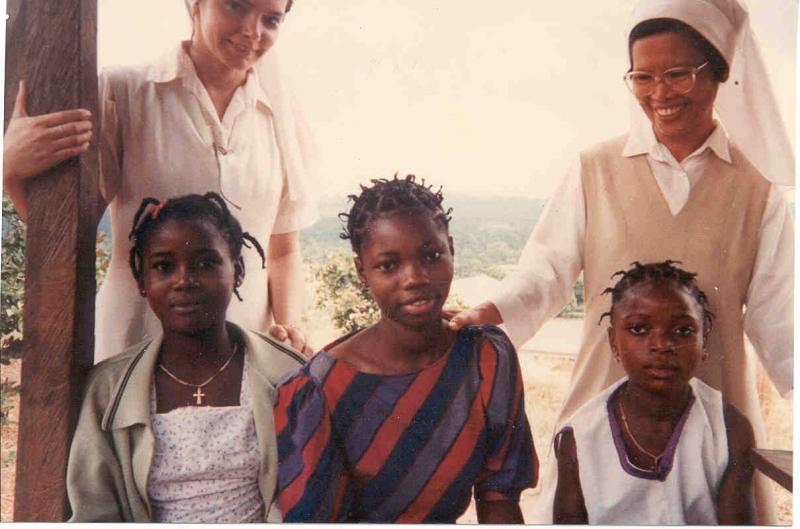Nigeria Is Alive
By Sr. Vilma Juaneza cm
Nigeria faces a serious political crisis at this time but daily life goes on. Sr. Vilma Juaneza finds joy and challenge in Nigeria vibrant Church.
We have come to Nigeria to be a part of the Church’s work of evangelization as well as to share with them the riches of the Carmelite Spirituality. We believe that we can do this by first ‘forming’ young women who will work with their own people in the future. We therefore focus our attention on Formation. We arrived here on July 16, 1989, two of us from Iloilo. The following year another sister from Colombia joined us. That completes a trinity.
Filipino Connection
The Carmelite Fathers who started their foundation here in 1988 had been in the Philippines for several years especially Frs. Michael Fitzgerald and Francis Considine. They are a great support and consolation to us and almost always our topic of conversation in the Philippines. They are the first to inform us of the latest news from home. They have a good number of Nigerian postulants and novices.
Local Color
Our first year here has been a year of day-to-day surprises from the people we meet, the food we eat, the places we’re invited to and transactions made with the Nigerian. It’s exasperating but funny and entertaining at times. Have you seen a typewriter walking? on a woman’s head? or a wardrobe moving on two men’s head on a motorcycle? or a bishops blessing people using a mosquito sprayer? Sometimes at the Offertory on Sunday we see parade of farm products vegetable, fruits, grains, fowl, a rams and ever officers who dance to the rhythm of the drums.
Quality Not Quantity
Masses here, especially on Sundays, are well-attended whether in big cathedrals or in the classrooms in the villages. There are many local as well as international congregations here. But no Nigerian can ignore the Filipino charm, sense of humor, simplicity, hospitality and depth, if all we wanted was quantity of vacations our house would be overflowing by now; but quality is more important especially for the first group of Carmelite Missionaries. After many visits, interviews, letters, encounters and sharings, we admitted three young women to start the postulancy.
Nigerian Culture
Except for the old people in villages who have not gone to school, everybody here understands English. That facilitates our mobility, but we believe we can be more effective if we can learn the language. That’s not the only limitation we have. There’s a lot more to know about the Nigerian culture and history, people and languages which are different in every tribe.
Nigeria was Christianized very slowly during the last 100 years but got there independence only 30 years ago. The presence of Islam is powerful and so also traditional animist religion.
A Great Challenge
There’s no dull moment in Nigeria. Every moment is a call for creativity, for celebration, for gathering, for prayer, for involvement, for conversation. So, too, a whole range of areas of Church life calls for inculturation. This is a great challenge for us; this same challenge is posed to the Nigerians. Meantime, let's start with our young Nigerian women who choose to be a part this beautiful work of evangelization. As we form them we are also formed by them, and in the process we experience unity in diversity in a way that gives meaning to our lives.

